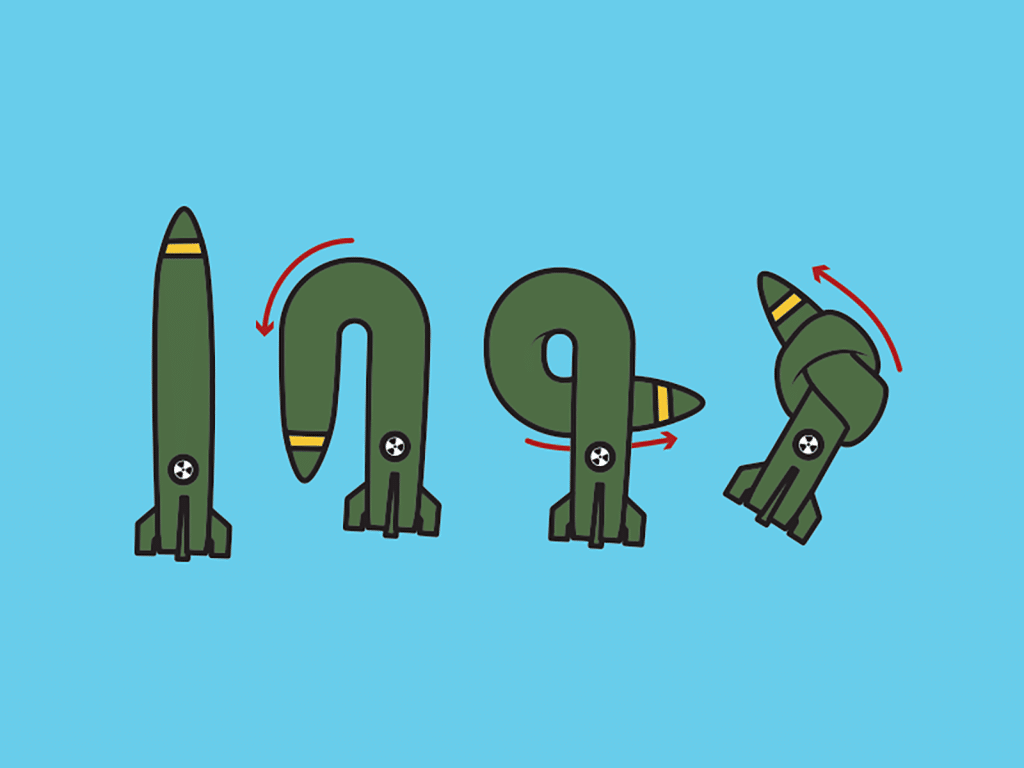
The nuclear ban treaty is set to enter force. Experts explain what comes next.
Posted: 2nd November 2020
From the Bulletin of the Atomic Scientists
By John Krzyzaniak | October 30, 2020
 Image courtesy of Jenny Villermin.
Image courtesy of Jenny Villermin.
Seventy-five years after their destructive power was first unleashed, nuclear weapons are about to be officially and explicitly prohibited by international law. For the average person, it may come as a surprise to know that nuclear weapons, dreadful as they are, weren’t already outlawed. But for the vast majority of nuclear weapons experts, the ban will arrive far sooner than expected.
The Treaty on the Prohibition of Nuclear Weapons, informally called the ban treaty, was adopted with the approval of 122 countries at the United Nations in July 2017. It forbids anything and everything related to nuclear weapons, including their development and possession. It also obligates countries that join it to provide support to the victims of nuclear weapons testing and use, and to undertake environmental cleanup.
But to enter into legal force, the treaty needed more than just a vote at the United Nations; it needed ratification by at least 50 countries. It achieved that mark on October 24, after Jamaica, Nauru, and Honduras deposited the 48th, 49th, and 50th ratifications in rapid succession over the course of several days. Accordingly, the treaty will become official international law 90 days hence, on January 22, 2021.
There’s an obvious snag though: The treaty is not binding on countries that have not yet ratified it, and all of the countries that possess nuclear weapons stand in unanimous opposition and have boycotted the entire process of negotiating the treaty from the start. In fact, just days before Jamaica, Nauru, and Honduras acceded to the treaty, the United States took the unusual step of urging other countries to withdraw from it.
In some ways, the ban treaty has already made its mark as more and more countries commit to never building nuclear weapons. In 2017, the International Campaign to Abolish Nuclear Weapons, or ICAN, won the Nobel Peace Prize for its key role in bringing the treaty into existence.
So what happens now? Even supporters of the treaty have modest expectations about the effects of its entry into force. In a forthcoming interview that will be published in a special 75th anniversary issue of the Bulletin, Beatrice Fihn, ICAN’s executive director, said, “Obviously it won’t have a direct, immediate sort of change on the situation in the world, but it’s a starting point for moving toward nuclear disarmament.… Implementing the treaty, in many ways, it’s just building normative pressure, building financial pressure through divestments.”
Though change may not be swift, Fihn is optimistic about the long-term outlook, noting that the world’s power dynamics are shifting. “In the top 10 [countries with] the biggest populations in the world, you have five nuclear armed states and five countries that have been leaders in the TPNW.” She said a country like Nigeria, which has ratified the treaty, could become a regional or global power in the coming decades, whereas nuclear-armed countries like France, the United Kingdom, and even the United States are rapidly losing global influence.
With these dynamics in mind, how might the treaty be implemented, stonewalled, or ignored over the coming years? The Bulletin reached out to top experts on nuclear politics to help answer those questions. Their responses, edited for clarity, are linked to below.



